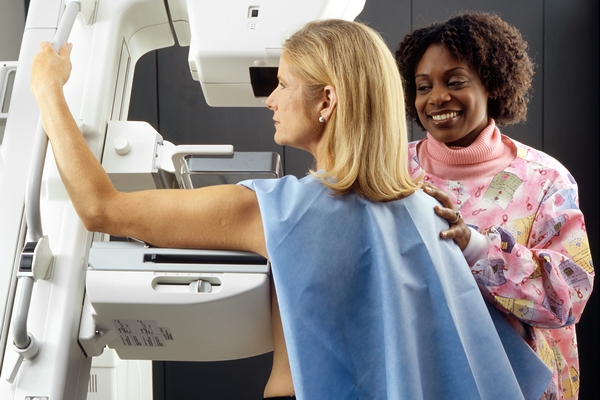28 December 2016. A clinical trial plans to assess the use of a blood test to diagnose neurological complications from the spread of breast cancer. The blood test or liquid biopsy, developed by cancer diagnostics company Biocept Inc. in San Diego to detect leptomeningeal metastases, will be evaluated by Columbia University Medical Center in New York.
Leptomeningeal metastasis is a disease caused by the spread of solid tumor cancer cells, such as breast cancer, to the meninges — the protective tissue layer for the brain and spinal cord — and cerebrospinal fluid, found between meninges layers that also protects the brain and spinal cord. From there, cancer cells can invade the brain, spinal cord, cranial nerves, or peripheral nerves.
The disease causes symptoms including double vision, headaches, pain, and problems speaking or swallowing, but is difficult to diagnose. Current methods for detecting leptomeningeal metastases are MRI scans and lumbar punctures, also known as spinal taps.
Biocept says MRI scans can provide an early indication of leptomeningeal metastases, but MRI results can be ambiguous. Analysis of cerebrospinal fluid, or CSF, from lumbar punctures is also unreliable, with a first-time detection of about 50 percent, often depending on abilities of the examiner. The detection rate can be raised with multiple lumbar punctures, but that adds considerable discomfort and expense to the patient.
Biocept’s technology analyzes biomarkers found in simple blood samples to detect the presence and determine the type of cancer in an individual, which in many cases today requires analyzing a sample of suspected tumor tissue in a surgical biopsy. The company uses antibodies to find circulating tumor cells, which break away from the primary tumor and flow through the blood stream. Circulating tumor cells make up only 1 in a million blood cells, and the antibodies used by Biocept enhance and amplify their presence for detection and diagnostics.
Another aspect of Biocept’s technology analyzes mutations in the circulating tumor cells to determine mutations causing the cancer. The company says its processes enable examiners to screen out healthy wild-type DNA, leaving mutated sequences that can be amplified with current sequencing techniques, even in real time.
The clinical trial at Columbia University Medical Center plans to test the sensitivity, or detection accuracy, of Biocept’s liquid biopsies to diagnose leptomeningeal metastases, or LM, among 46 breast cancer patients undergoing lumbar punctures. Columbia’s lead investigator, oncology and hematology professor Kevin Kalinsky, says in a Biocept statement that the trial will use the company’s technology, “to evaluate oncologic biomarkers in the CSF of breast cancer patients, with the potential to provide a rapid and accurate solution to confirm diagnosis and enable patients to begin treatment for LM earlier.”
The study team is also expected to analyze tumor DNA captured in the blood tests along with circulating tumor cells. The additional analyses will look into differences in DNA and circulating tumor cells among patients with leptomeningeal metastases confirmed or suspected with MRI scans, as well as those with a negative diagnosis from lumbar punctures. Moreover, the researchers will assess the feasibility of Biocept’s technology to detect breast cancer biomarkers in the cerebrospinal fluid of patients.
Read more:
- Engineered T-Cells Tested on Metastatic Cancer
- Liquid Biopsy Better Detects Lung Cancer Mutations
- Liquid Biopsy Lab to Reside at Cancer Institute
- Mobile Multichannel Biomarker Detector Designed
- $1.2M Challenge Seeking More Accurate Mammograms
* * *


 RSS - Posts
RSS - Posts
You must be logged in to post a comment.